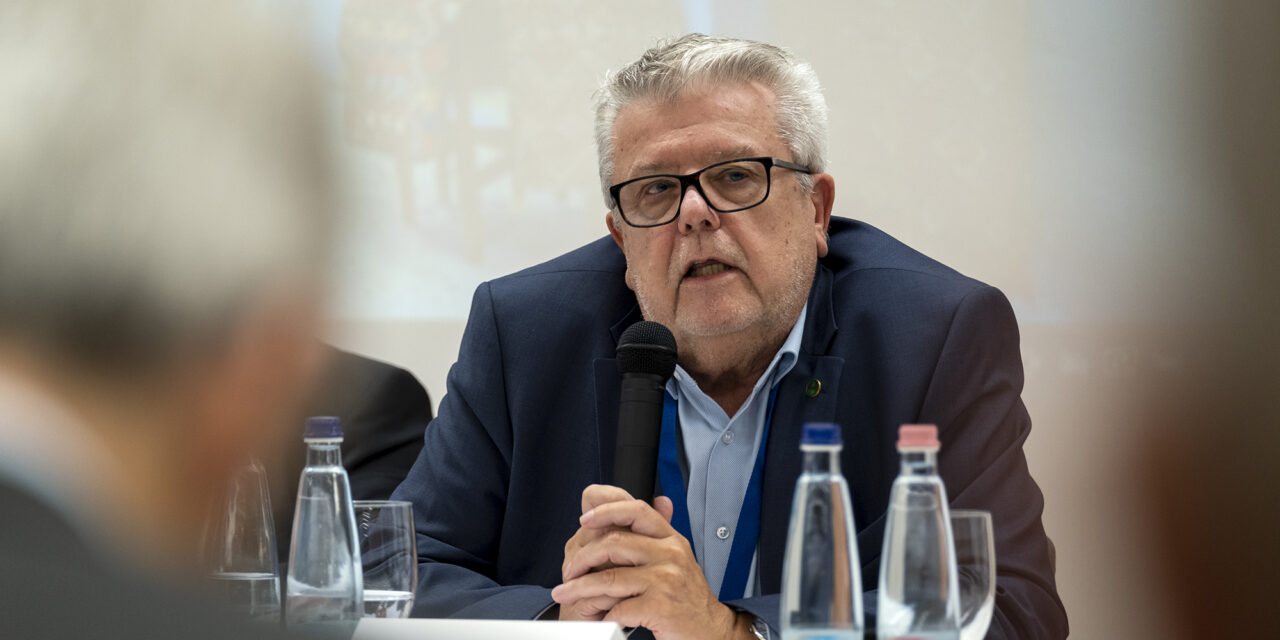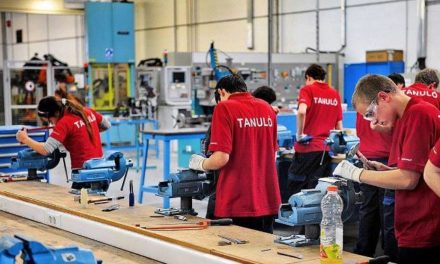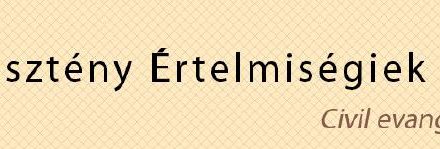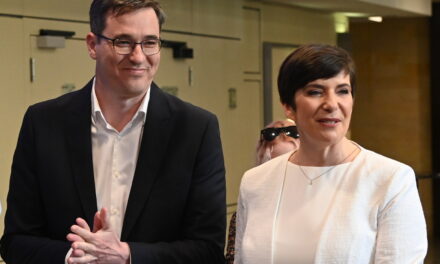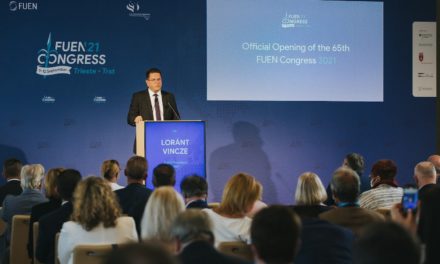The Batthyány Circle of Professors (PBK) held a conference on Friday, October 13 in Sátoraljaújhely, at which the president of CÖF-Cöka, László Csizmadia, spoke, introducing the Civil Solidarity Forum, PBK's partner organization. His speech is reproduced below:
I respectfully greet the ladies and gentlemen participating in the conference!
We heard an exciting presentation, the topic of which revolved around energy and nature conservation. I have to admit that I myself learned a lot from the professor's lectures.
I was given the task of presenting the Civil Solidarity Public Foundation. Those before me started with the history of their foundations. We do not have a 100-year history, we were founded in 2009. The founders of CÖF-CÖKA were the late Ágoston Schulek, Tamás Fricz and myself.
Looking back on the antecedents of the foundation, I can say that at the invitation of Imre Makovecz, about twenty of us gathered in 2009 and we set as our goal to draw a road map to the corner of the then reigning government.
This is how it happened that, after five days of organization, on Palm Sunday 2009, we now know that, as the premiere of the Peace March, we were able to produce a rally where approximately 250,000 people showed up, and the Hősök tere was full all the way to Kodály Körönd. Our main organizer, Imre Makovecz, began his opening speech in a powerful, deep voice: "Enough was enough!". Kossuth Rádió commented on our success by saying that 2,000 people gathered in Hősök Square and protested.
On this wonderful day, we felt that the civilian force is also needed in the long term.
Our first movement as an opposition NGO took place on the day of Prime Minister Gordon Bajnai's inauguration. In Alkotmány Street, which was filled with a crowd, we read out the petition that we handed over to Zsolt Semjén in the morning with the request that he present it in Parliament. Summing up the gist of the petition, we complained that the party on the verge of collapse appointed the prime minister instead of calling the elections. Gáborék Vona's black army lined up behind our stage, whose goal was to perform after us. We did not give this opportunity.
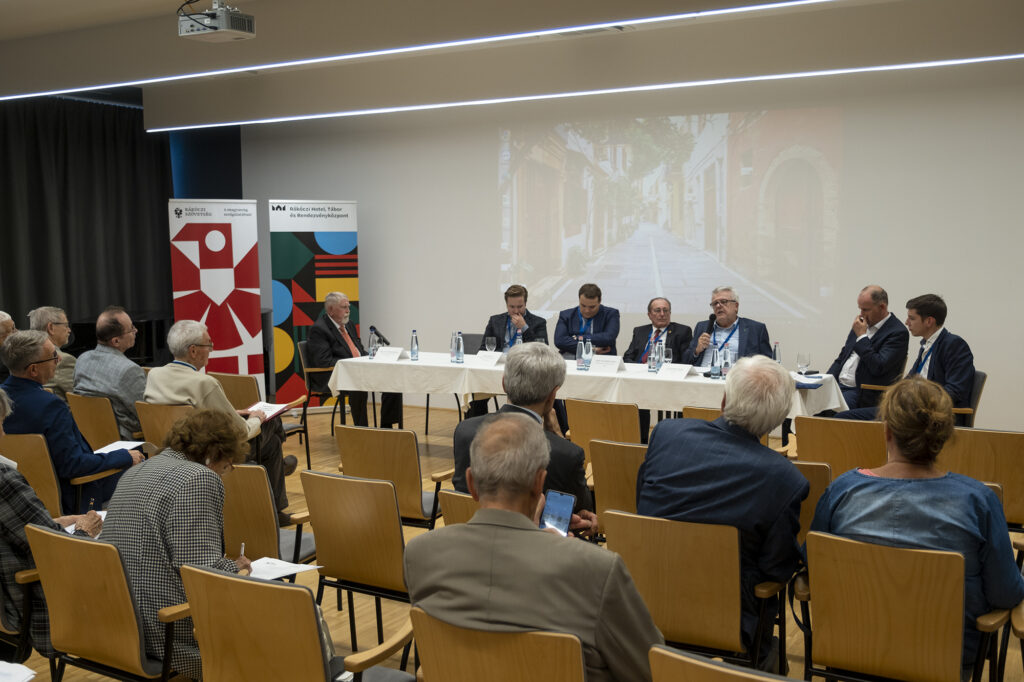
civilek.info
Maybe that's all about our departure.
The basis of our ideology became the representation of Christian-national-conservative interests. I would like to add here that since the world is changing rapidly, in addition to preserving traditional values, we know that conservatism must also move with the times.
The speakers who presented their foundations and associations in front of me explained their organizations and wonderful movements. For my part, I would highlight the organization of the Peace Marches, in which the 350,000-500,000 citizens who participated always strengthened our faith, and we could feel that we were on the right track. Many people ask when the Peace March will take place again, primarily in relation to the Russian-Ukrainian war.
Perhaps the time for this will come at the beginning of next year, and then we can peacefully stand for the ceasefire, rejecting any kind of aggression.
The multitude of participants from all parts of our nation could demonstrate with sufficient force that Budapest cannot be torn out of the body of the country, so in my opinion the capital belongs to the nation, we must get it back and it cannot be the daily embodiment of partisan actions.
Looking at Europe, we tend to emphasize the principle of popular sovereignty, which is considered the basis of democracy. Classical democracy is actually the expression of the will of the local majority. Given that the reigning power is mandated based on the principle of subsidiarity, it must always ensure that it represents the nation in its entirety, taking into account the protection of the interests of minorities.
We consider it good governance if the people are asked about their destiny, they can do this by referendum or popular consultation.
In the European Union, however, we see that valuable citizen initiatives end up in bureaucrats' offices. No action is taken. In recent times, we can say without exaggeration that the institutional system of the Union is on top of its head, so it must be put back on its feet. We have to do this and it is our first time, including all citizens of Europe who have the right to vote, if we take our fate into our hands in connection with the EU parliamentary elections and vote for the representatives of those parties who are loyal to the principle of popular sovereignty, who do not become corrupt and possibly traitors in order to live up to their party ego too.
I would like to highlight the operation of our news portal (civilek.info) from today's activities, which claims to be civic-centric, in parallel, the same can be said about the CÖF Facebook and our newsletters.
Our CÖF clubs are forming more and more all over the country and deal with socio-political and economic issues. Our speakers with excellent expertise attract hundreds of people at a time. Our natural helpers are the so-called Nationally known members of our expert group working in C12.
Twice a month, we organize interactive Civil Academies in Budapest, in the countryside and in Hungarian-inhabited areas across the border.
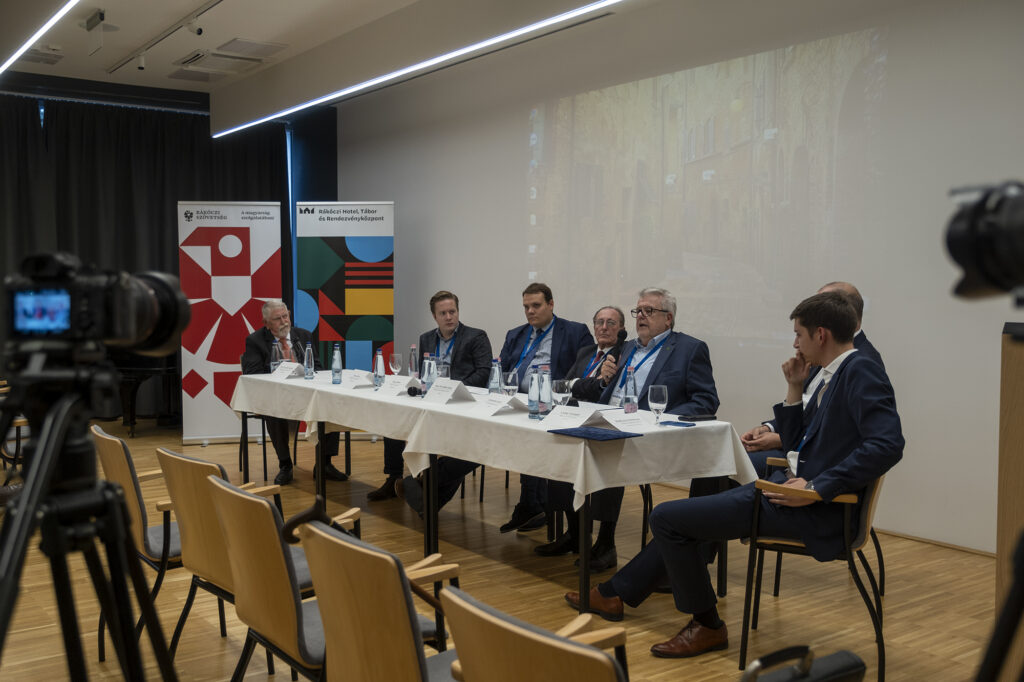
civilek.info
We are proud that in 2017 we established the European Union Civil Cooperation Council (EuCET) on our proposal with our Polish friends, whose IV. congress will be held this year on November 24-25 with the presence and presentations of representatives from more than 20 European countries. Our aim is that the heads of foundations, associations and well-known personalities who come here present the opinion of the organizations operating in their country regarding the Union. The sections participating in the panel discussion mainly present proposals on the reformation and development of the European Union, and deal with the current problems affecting families and youth and their solution options in a professionally grounded manner.
I could also talk a lot about our charitable activities, which we have been doing for years thanks to our private supporters, for example by installing preservation equipment, teaching relevant technologies, immune-protecting fruits delivered to residents of nursing homes during COVID, as well as our local lectures on modern nutrition for children.
In addition to our traditional activities, we considered it important in an innovative way to protect the interests of civilians employed as employees in a way that differentiates them from trade unions in an efficient and favorable way. Our slogan: "We row in one boat". Our main point is that interest protection activities should not be demonstrated in the streets with demonstrations. We consider it an optimal solution if the caring state, company owners and managers (as employers) and employees and their families solve their problems in a community, coordinating their interests. In connection with this, we set up a Quality Committee with the stakeholders, which, somewhat similar to how Michelin-starred restaurants are judged, we rate the individual workplaces on the basis of points, supplemented by a local survey and self-declarations.
In this way, within the framework of a pilot program, we can show the way for the community to live in symbiosis. In this case, taking into account the companies involved, the appropriate system of interests of the actors mentioned above can be jointly determined and ensured.
We will start our activity first in the direction of retail and wholesale food. The self-evaluation of the community takes into account the interests of the caring state, after the ever-increasing turnover, the interests of the owner through the taxes flowing into the budget with the possibility of new investments available from profits, the evaluation of the employees' performance in connection with optimal wages, even by providing a "profit ticket".
Evaluating the background activities of families, they adapt to the continuous maintenance of services provided for education, sports, and health protection.
We want to establish the settlement of interests in the communities by adopting consensuses. This position of ours naturally also extends to the institutional system of the European Union. In our opinion, the European Council (EC) should be considered the main decision-making body of the Union. State leaders and heads of government entrusted with responsibility by the voters can be seen red-handed here.
The right of veto should be forgotten. Consensus must be sought in relation to the decisions to be resolved, taking into account possible national characteristics, so that the interests of the community are not harmed, but joint decisions can be created and accepted.
We support that our government builds a bridge between East and West with its negotiations and contracts in the economic field. Politically, we claim to belong to the West, but we are always supporters of peaceful solutions. Europe should be an economic superpower committed to peace by its own strength, by maintaining the community of nations.
Let our nations preserve the thousands of years of Judeo-Christian traditions and show respect for the religions that exist in the world.
Finally, I would like to thank the Batthyány Circle of Professors for its community-building initiative, which was also intended to be forward-looking, where today we believed that the unity of the associations and foundations present would ensure the effectiveness of our joint opinion-making and work.
László Csizmadia

